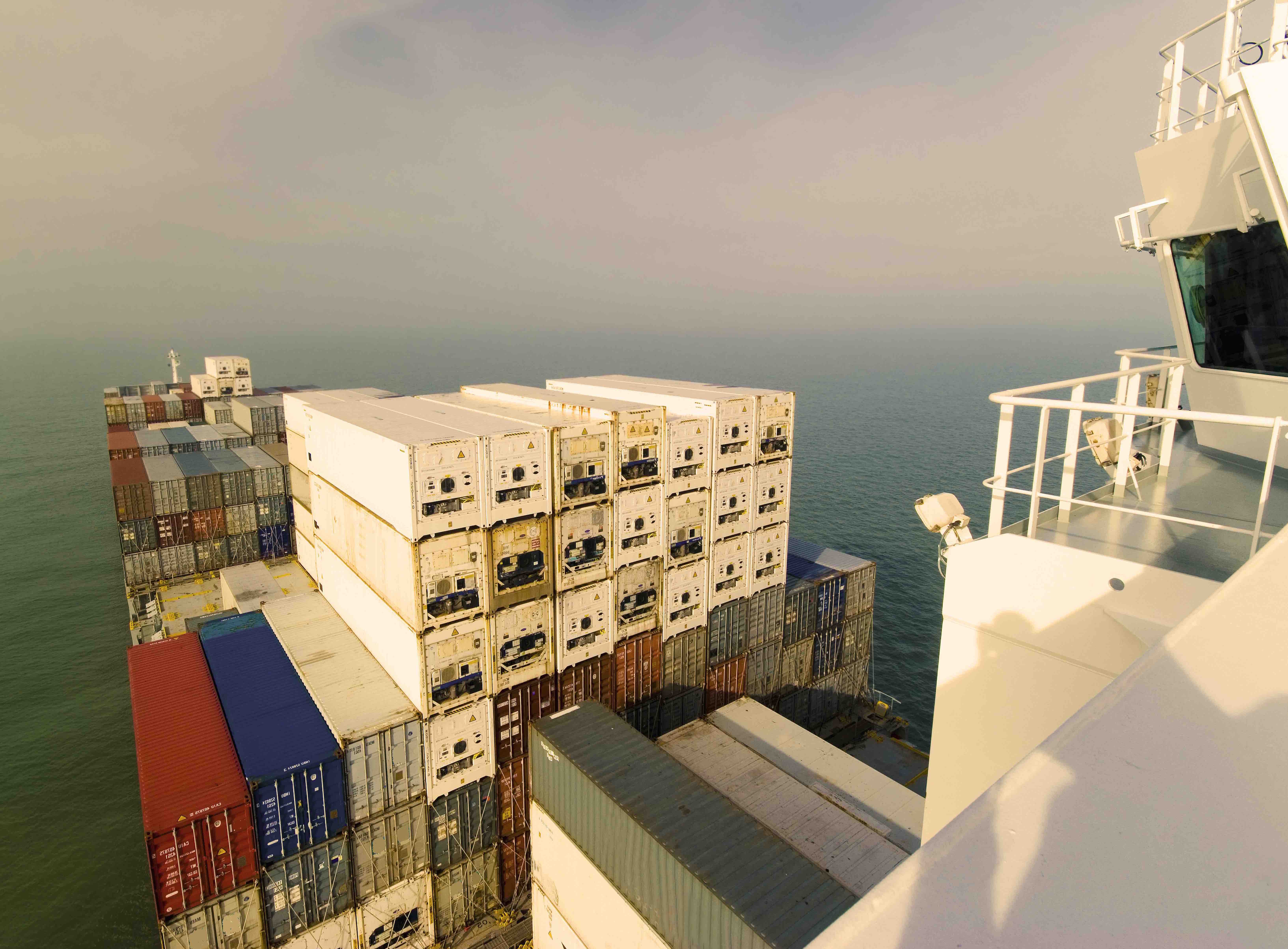Trade agreements lift cool cargo volume. As a visit to Granville Island Market demonstrates the world’s hunger for fresh fruit, meat and perishable foods has resulted in complex global supply chains as maritime transport of cool cargoes is increasingly used to satisfy consumer demand.
Vancouver, Montréal and Halifax dominant Canada’s marine reefer export cargo market. Regarding imports, Vancouver handles the largest share, followed by Montreal and then Halifax. The total Canadian seaborne reefer market in 2011 (the last year for which Stastcan data is available) is estimated at 2.2 million tonnes. Exports are estimated at 1.6 million tonnes while imports are almost 700,000 tonnes.
Port Metro Vancouver (PMV) data indicates that meat, fish, poultry and prepared food products account for about 95% of all reefer exports. Produce, meat, fish and poultry account for 92% of all reefer imports. While the concepts embedded in the 100-mile diet are no doubt worthy, the international trade data suggests a global supply exists regarding the flow of refrigerated cargoes. PMV data indicates that in the course of a single year, their facilities now handle about 537,000 tonnes of meat, fish and poultry exports and 350,000 tonnes of produce imports. Dairy and other prepared food products also use temperate controlled containers.
The importance of international trade agreements in the cool cargo sector cannot be overstated. On December 31, 2015, Canadian beef products were once again able to flow to South Korea, following that country’s lifting of a temporary suspension imposed in February 2015.
The Canadian Cattlemen’s Association (CCA) President Dave Solverson said the resumption of access to South Korea was important for Canada’s beef producers. “South Korea holds huge potential for beef and especially cuts and offals that are underutilized here at home.” With the implementation of the Canada-Korea Free Trade Agreement in late 2014, the CCA believes Canadian beef exports to Korea have the potential to exceed $50 million per year.
The Canada-European Union Comprehensive Economic and Trade Agreement (CETA) is perceived as having enormous potential for Halifax in particular, as Saint John does not have direct service to Europe. At the minimum, CETA will result in significant increases in pork and beef exports to the EU, and dairy imports from the EU. These products will likely originate in western Canada while products like cheese will be destined for Central Canada, where Halifax and Montreal will compete.
The Port of Montreal has also gone on record as eagerly anticipating the ratification of CETA. The port’s CEO, Sylvie Vachon has been quoted as saying, CETA is “made to measure for the Port of Montreal. We already are the leading port on the North American east coast for trade between Northern Europe and North America’s industrial heartland. With our strategic location between the world’s two largest economic blocs, the EU and NAFTA, the Port of Montreal is the natural gateway to Europe”.
The Canadian Pork Council report, Potential Implications of a Trans-Pacific Partnership for the Canadian Pork Industry determined that if Canada were not part of a major TPP agreement in which the U.S. and Japan were signatories on pork, Canada could lose at least $330 million in export sales. The loss of $330 million in sales represents about a billion in total economic activity in Canada and about 4,500 jobs in jeopardy. Without the ability to compete in the most lucrative overseas market, Canada’s processors/exporters would not be able to sustain the competitive pressure from the U.S. and would ultimately face shutdowns. The presence of international trade agreements and the growing reliability of cold chain technology confers opportunities to ship greater volumes of temperature controlled products and expand markets through economies of scale.
The importance of international trade agreements in the cool cargo sector cannot be overstated. On December 31, 2015, Canadian beef and beef products were once again able to flow to South Korea, following that country’s lifting of a temporary suspension imposed in February 2015.
The free flow of refrigerated and cool cargoes through Canadian ports accounts for significant economic activity and many jobs. Consumers in Canada beyond the immediate port area depend on this trade. Read Darryl Anderson and James Frost’s article “Prospects for Canadian ports’ cold cargo heat up” in the February issue of BC Shipping News.

